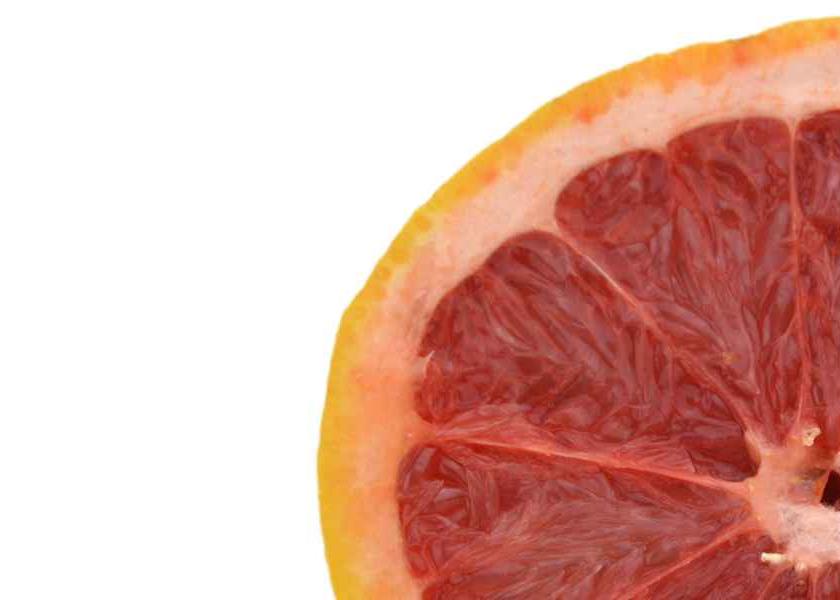Domestic grapefruit shippers alarmed by suspension of juice content requirement for imports

U.S. citrus leaders are raising concerns about a recent change in U.S. Department of Agriculture inspection requirements for imported grapefruit.
Domestic shippers say the “patch” in inspection regulations that suspends the juice content requirement is already allowing in poor-quality grapefruit from Mexico.
“This situation is a real problem,” one Florida shipper said in an email. “We are very disappointed in the lack of action at the government level.”
The USDA has not said why the agency suspended the juice content requirement.
The Packer asked for USDA comment on the issue in a Nov. 19 email but did not receive a response as of 4 p.m. Central on Nov. 22.
The concerns of Florida and Texas domestic citrus shipments were punctuated by November letters to Agriculture Secretary Tom Vilsack from Texas Commissioner of Agriculture Sid Miller and Florida Commissioner of Agriculture Nikki Fried.
Miller’s letter, dated Nov. 9, stated:
“On behalf of our Texas grapefruit growers, I write to express my concern regarding the suspension of the juice content requirement that pertains to maturity determination for imported grapefruits under Section 8e ordered by PATCH #065 on April 26, 2021. The relaxation in standards of maturity for imported grapefruits has given Mexican grapefruit producers a distinct and unfair advantage over Texas producers, which will lead to dumping of inferior fruit in our state and across the country. Texas producers adhere to strict grade standards, which has afforded Texas-grown grapefruits high regard from consumers. If Mexico is allowed to bypass the same standards and export copious amounts of inferior fruit, then not only will the price received by Texas grapefruit producers crash, but consumer perception of grapefruits will also suffer.
Evidence already exists to corroborate this serious concern. According to the USDA Agricultural Marketing Service, 18 loads of grapefruit came from Mexico to the United States in October of 2020 before the juice content requirement was suspended. In October 2021, Mexico sent 109 loads of grapefruit. Only nine days into November of 2021, Mexico has already sent 79 loads of grapefruit into the U.S. compared to only 13 from the same time period last year. This represents more than a 500% increase in loads in both October and the first nine days of November between the two years. The significant increase in grapefruit imports drives prices down for grapefruit producers across the country.
Although PATCH #065 ordered inspectors not to use juice content as a measure of maturity, the Texas Cooperative Inspection Program, which inspects produce imported through Mexico as part of a joint program between the Texas Department of Agriculture and USDA, continued to take juice content measures as mandated by state law. 51 loads of grapefruit crossed into Texas from September 1st to October 28th of this year. If the juice content requirement for maturity determination had not been suspended, 149 out of 174 lots out of the 51 loads would have failed. In other words, 85.6% of the tested lots would have previously been rejected for sale to American consumers. To be clear, none of these lots were rejected based on juice content, and these grapefruits were allowed to continue in the supply chain. There is no doubt that purchase of such a grapefruit has the potential to damage consumer opinions and subsequently the grapefruit market.
Since this suspension was enacted as a patch instead of a rule change, there was no opportunity for public comment that could have revealed these serious concerns. Grapefruit producers in Texas were not approached for their input, and it seems no consideration was given to how these changes could affect them.
Grapefruit producers in other citrus-heavy states such as Florida and California likely also take issue with the way the changes were made. Texas grapefruit producers have already suffered this year from the devastating effects of Winter Storm Uri. The disregard demonstrated by USDA with the implementation of PATCH #065 not only further demoralizes our grapefruit producers, but also harms them economically.
USDA cannot continue to endorse the overshadowing of high-quality Texas grapefruit by excessive imports of inferior-quality grapefruits. I strongly urge the USDA to immediately reinstate the juice content requirement for imported grapefruit maturity determinations. In order to have free and fair trade, producers of the same commodity must abide by the same standard. Immediate reversal of PATCH #065 would not undo the damage Texas grapefruit producers have endured this year, but it would put them back on an even playing field in the years to come.”
Meanwhile, Florida Commissioner of Agriculture Fried said in Nov. 4 letter to Vilsack repeated her long-standing position that Florida growers need seasonal trade protection and added her objection to changes to the grapefruit inspection standard.
In the letter, Fried said:
“Unfortunately, in the face of continued inaction on protections for our domestic seasonal industry, we also were recently made aware of a troubling action that stands to further devastate Florida farmers and our state's citrus industry. There appears to have been a "patch" quietly issued earlier this year eliminating juice content requirements for fresh grapefruit being imported from Mexico and other countries while the domestic industry is still required to adhere to these standards.
This deeply troubling action is creating further unfair advantages for Mexico and for others over our domestic industry, which is already facing challenges when it comes to citrus greening as well as loss of access to foreign markets due to supply chain issues causing backlogs at U.S. ports. this misguided move also stands to have a lasting devastating effect on the domestic industry if consumers turn away from fresh grapefruit overall due to receiving sub-standard foreign imports, with estimates that 80% of the fruit coming across the southern border do not meet juice content standards. With Florida's grapefruit domestic season kicking off now, time is of the essence when it comes to correcting this issue.”







